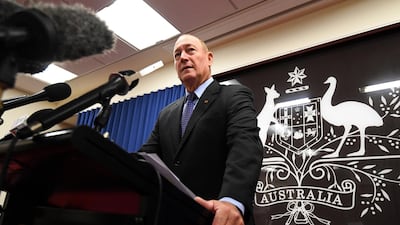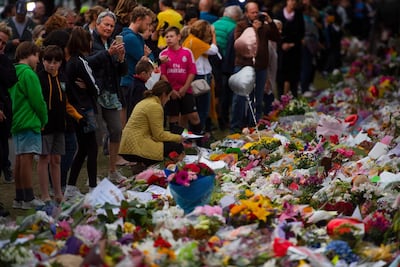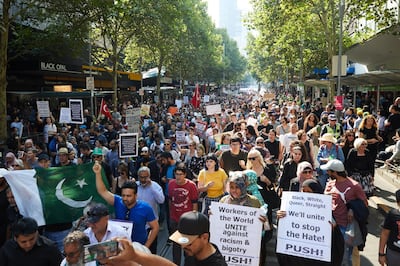Australia has long been known as "the lucky country", thanks to Donald Horne's book by the same name. Yet in the aftermath of the terror attack on two mosques in New Zealand, allegedly committed by Australian Brenton Tarrant, his fellow citizens are undergoing some serious soul-searching about the levels of racism and xenophobia that appear to have become normalised in their nation. Many were outraged by the appalling words of senator Fraser Anning, whose immediate reaction to the tragedy was to claim that "the real cause of bloodshed on New Zealand streets today is the immigration programme which allowed Muslim fanatics to migrate to New Zealand in the first place". But his extreme views are not confined to the far-right fringe.
This is a country in which only last October, the ruling Liberal-National coalition initially voted in favour of a motion which noted the supposed “deplorable rise of anti-white racism and attacks on western civilisation” and which affirmed – somewhat needlessly in Australia, one would have thought – that “it is okay to be white”.
And this is a country whose prime minister Scott Morrison has a model of a migrant boat in his office with the words “I stopped these” inscribed on it. (Regardless of what you might think about the country's migration policy, just ponder the triumphal callousness of that for a second.) This is a country in which one leading political commentator, Andrew Bolt, felt he could write without censure last year that “immigration is becoming colonisation…There is no ‘us’ anymore, as a tidal wave of immigrants sweeps away what’s left of our national identity”; a country in which a parliamentarian – senator Pauline Hanson – compared Islam to a “disease” against which Australians needed to be vaccinated.
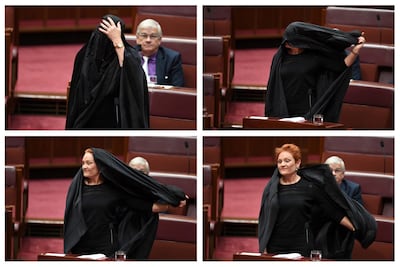
Prejudice in Australia needs to be faced head-on. But so does the whole idea of Australia's place in the world. Its political leaders have long wanted to be part of Asia but have been rebuffed by developing world figures with a distaste for what they regarded as the arrogant lecturing of European colonialists. When, in 1997, Malaysian prime minister Dr Mahathir Mohamad proposed setting up an East Asia Economic Caucus, it was precisely the point that he excluded Australia and America – earning its nickname "the caucus without Caucasians".
The perception that the Liberal administration headed by John Howard, from the 1990s to 2007, was more than happy to play “deputy sheriff” to the US – a title bestowed by then president George W Bush – did nothing to help matters. This was not the kind of role endearing Australia to the rest of the region.
More recently, sensible politicians have realised that Australia's relationship with Asia has to be forged on more equal terms. The former prime minister Julia Gillard has talked of building "a sense of Asia literacy and capability" that the country will need "as we make our future in our region of the world". When her predecessor Kevin Rudd took office in 2007, there was much excitement about the fact that he was fluent in Mandarin; here at last was a leader who could literally speak the language of Asia's rising power.
Australia has realised its significant neighbours lie to the north and it will have to find its place in Asia. Yet as a white settler nation, it has never really come to terms with the atrocities it inflicted on the indigenous Aboriginal population, with whom no treaty formalising a peaceful co-existence or conflict resolution has ever been signed, in contrast to the pact signed by newcomers to New Zealand and indigenous Maoris. That thinking also flies in the face of a significant percentage of Australians who want to maintain the “purity” of a white European country that just happens to find itself on the wrong side of the globe. Worryingly, this kind of attitude is to be found at the very heart of government.
How else to interpret the call last year of home affairs minister Peter Dutton for white South African farmers seeking refuge in Australia to be given “special attention”? Claims that they are fleeing persecution have been widely debunked. But Mr Dutton and many others clearly have far more sympathy for any of their white “brethren” who plead distress than they do for the desperate refugees and asylum seekers whose leaky vessels they so proudly turn away.
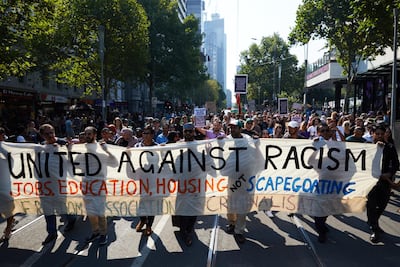
Neither do they care about the inhumane conditions many migrants have subsequently had to endure in offshore asylum detention centres, such as those on the Pacific island of Nauru. As then prime minister Tony Abbott said in 2015, Australians were “sick of being lectured to by the United Nations” about the issue.
It will not have been lost on Australia’s neighbours that many of these migrants are from Asia. They will be pondering whether this is what white Australians really think of them – that they are somehow less deserving of humanity and compassion. How will it help relations with Muslim countries such as adjacent Indonesia when Mr Morrison has been accused of playing on anti-Muslim sentiment in the past, while his predecessor Mr Abbott once went so far as to say that “Islamophobia hasn’t killed anyone”?
It wasn’t true in 2017 when he said it, and it must be obvious, even to Mr Abbott, that it is certainly not true now. But the Christchurch killer was far from a lone wolf. The massacre he perpetrated has shone a light on the ugly morass of xenophobia and Islamophobia that nurtured such barbarism. Australia must urgently confront its demons, both for its own good and for it to be welcomed by the continent whose people and beliefs so many of its leaders have treated with bigotry, cruelty and disdain.
Sholto Byrnes is a Kuala Lumpur-based commentator and consultant and a corresponding fellow of the Erasmus Forum
